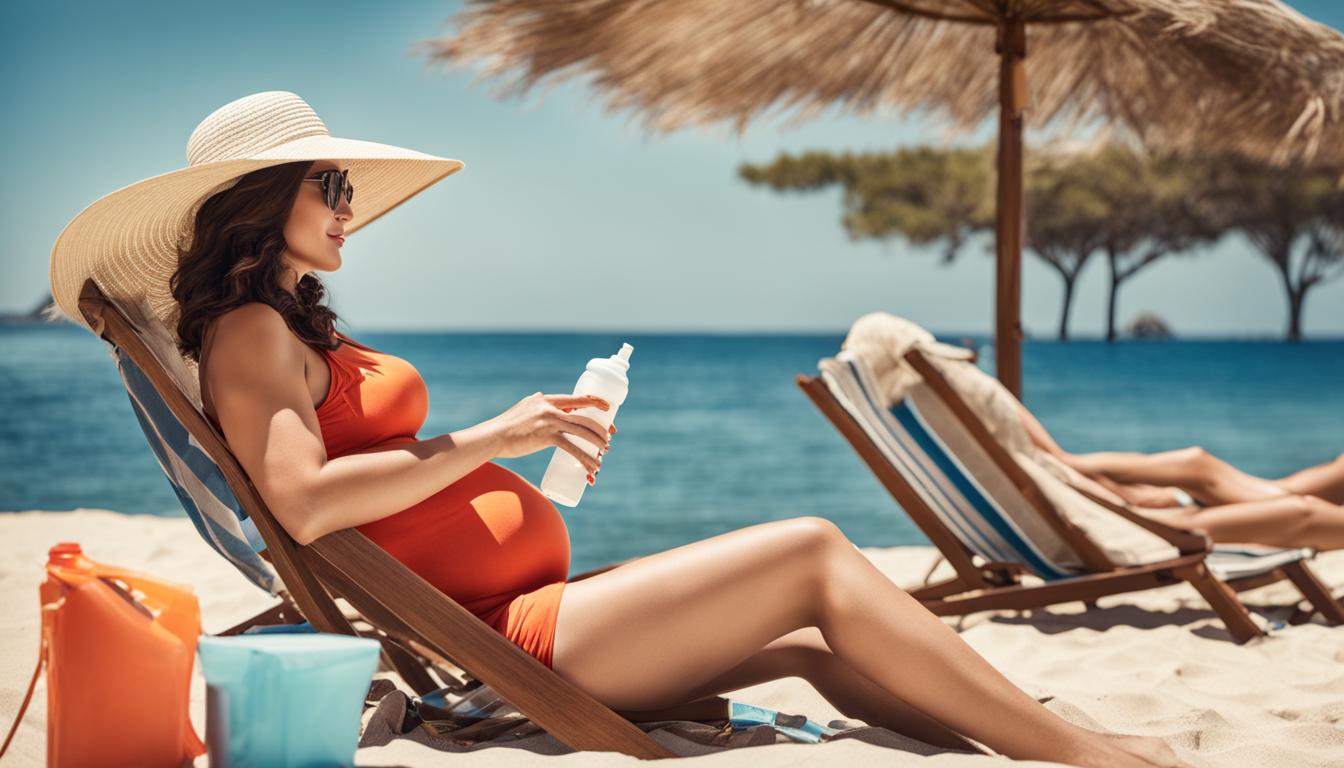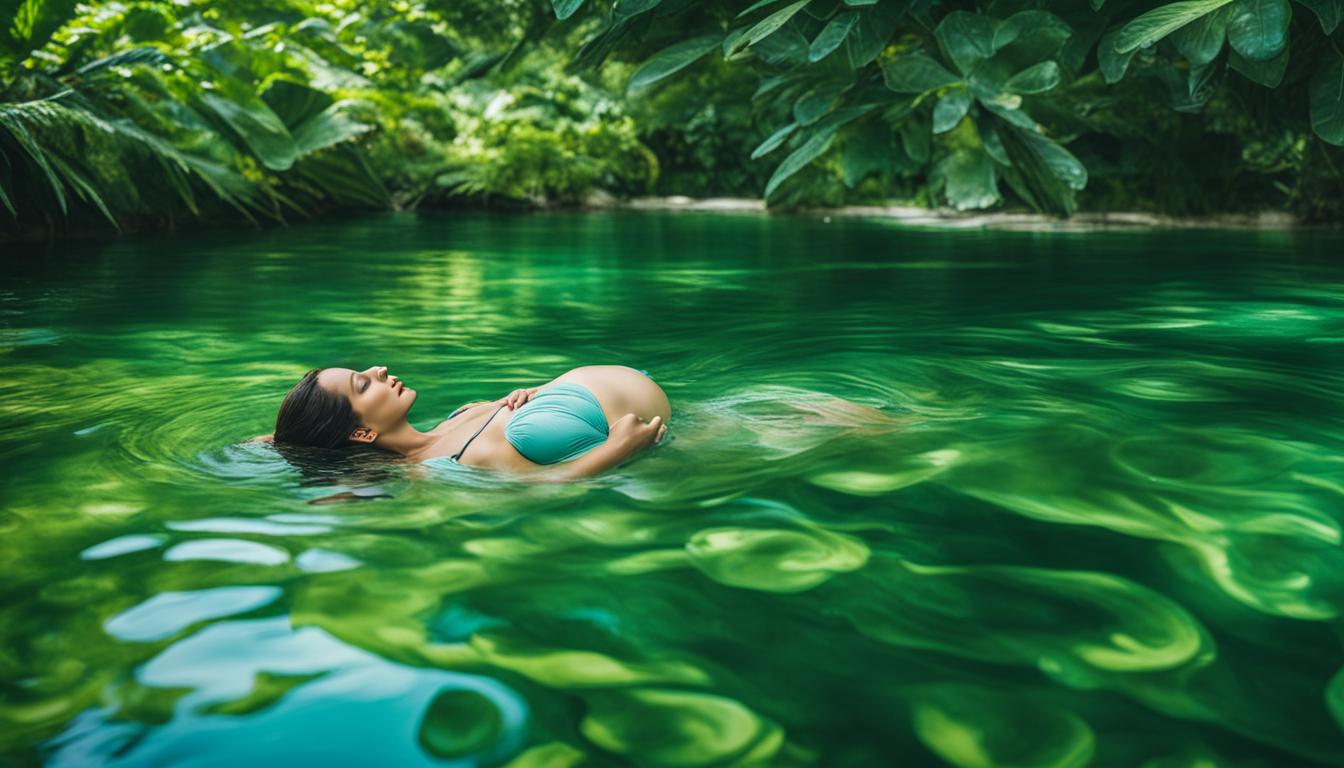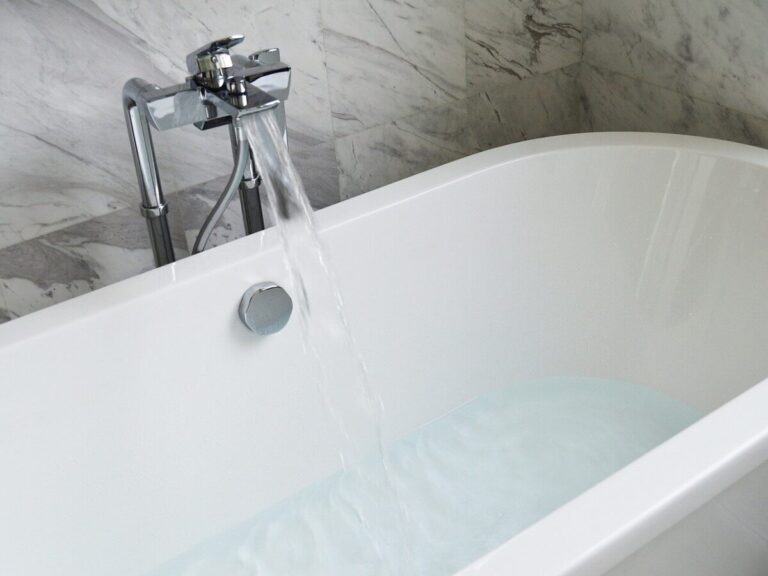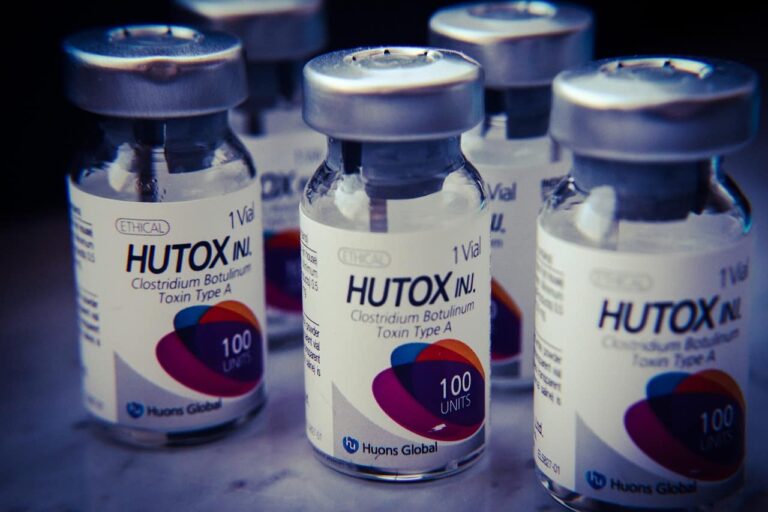Protecting Your Skin: Avoiding Sunburn While Pregnant
As you embrace the joys of pregnancy, your health and well-being take on new importance, especially when it comes to enjoying the great outdoors. Basking in the sunlight is a treasured pastime, but did you know that sunburn while pregnant can pose significant risks? Your radiant, expectant skin requires extra attention to guard against harsh ultraviolet (UV) rays. This doesn’t mean forfeiting beach days or poolside relaxation, but it does mean emphasizing pregnancy skincare for sunburn and putting a plan in place for sun protection during pregnancy.
Heightened hormonal activity during this precious time can make your skin especially vulnerable, leading to quicker burns and increased chances for discoloration. Understanding these risks and adopting sun-safe habits are crucial steps in safeguarding both your health and your baby’s development. So before you step out to soak up some Vitamin D, let’s arm you with knowledge and strategies to prevent sunburn and its subsequent risks during this special time.
Key Takeaways
- Protecting your skin from UV rays is more critical during pregnancy due to increased sensitivity.
- Preventative measures, including wearing sun-protective clothing and applying the right sunscreen, are essential.
- Avoiding the sun during peak hours and staying hydrated can minimize the risk of overheating.
- Understand which sunscreen ingredients are safe for pregnancy, steering clear of oxybenzone.
- In the event of sunburn, opt for safe, natural remedies like aloe vera and take necessary precautions to prevent escalation.
Understanding the Risks of Sun Exposure During Pregnancy
When you’re expecting, your body undergoes numerous changes, and your skin is no exception. As a pregnant woman, you need to be especially mindful of sunburn risks during pregnancy, as your enhanced hormonal levels make your skin more vulnerable to the sun’s ultraviolet rays. This heightened sensitivity not only increases the likelihood of sunburn but can also lead to a multitude of skin complications, including the risk of melasma. These dark, discolored patches on your skin can be a direct result of excessive sun exposure during pregnancy.
Moreover, serious hazards such as dehydration can afflict pregnant women when they spend too much time under the sun. Dehydration, in turn, can lead to undue stress, causing possible pre-term contractions—a situation no expectant mother wants to face. High body temperatures caused by sunburn could also pose a monumental risk, earmarked by potential birth defects. An essential nutrient that can be particularly depleted due to sun exposure is folic acid, vital for your baby’s neural development, especially in the initial trimester.
Remember: While soaking up the sun can provide you with necessary Vitamin D, the hazards it poses heightens when you’re pregnant. Always practice safe sun habits to protect both your health and your baby’s welfare.
Below is an informative breakdown of common sunburn symptoms during pregnancy that you should watch out for and effective sunburn remedies for pregnancy to ameliorate discomfort and promote healing.
| Sunburn Symptoms During Pregnancy | Sunburn Remedies |
|---|---|
| Skin redness and irritation | Cool baths and showers |
| Heat sensations on the affected area | Pure aloe vera gel or cream |
| Swelling | Hydrate with plenty of water |
| Blistering (in severe cases) | Consult a healthcare provider |
| Headaches and dizziness | Rest and stay in a cool environment |
It’s imperative that you not only recognize these symptoms but also understand the necessity of adopting immediate sunburn remedies. Effective strategies like hydrating with water and using soothing topicals such as aloe vera can provide relief. For more severe symptoms like blistering or overwhelming discomfort, do not hesitate to seek professional medical advice.
- Avoid sunbathing during the peak hours of 10 a.m. to 2 p.m. when UV radiation is the strongest.
- Wear a wide-brimmed hat and UV-filtering sunglasses to protect your face and eyes from harmful rays.
- Cover up with light, breathable, and protective clothing to shield exposed skin.
- Apply safe and suitable sunscreens without oxybenzone and reapply every two hours, or more often if swimming or sweating.
Incorporating these tips into your daily routine will significantly reduce the potential harm that sun exposure can cause, ensuring that you and your upcoming bundle of joy remain safe and healthy. Embracing a balance between benefitting from the sun and protecting against its harsher effects is key to a peaceful and enjoyable pregnancy.
Sunburn Prevention Strategies for Expectant Mothers
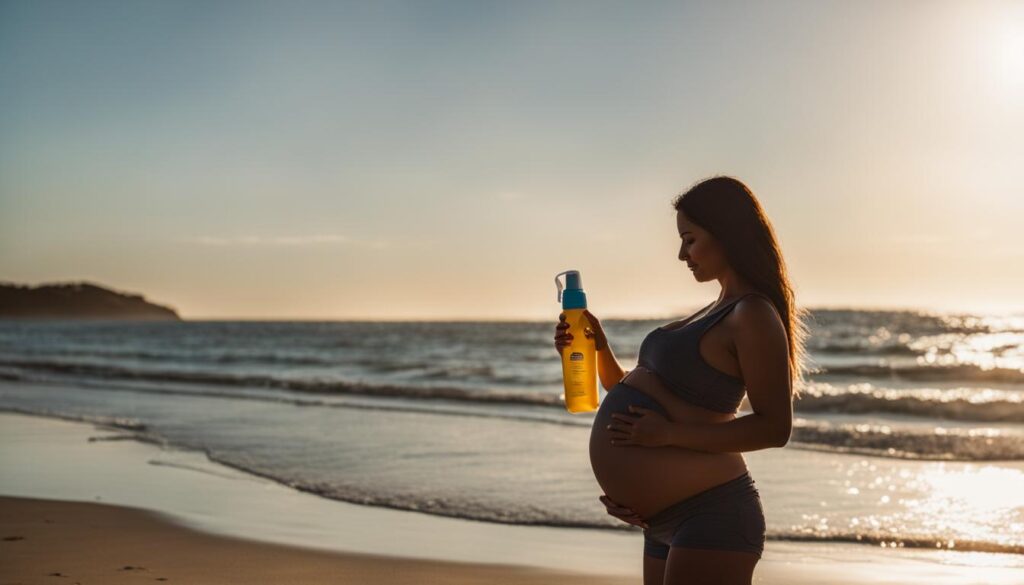
Expectant mothers know that pregnancy is a delicate time for both their own health and that of their baby. As the summer months approach, thoughts of beach days become tempting yet fraught with concern over sun exposure. Fortunately, sunburn prevention for pregnant women involves simple, effective strategies that ensure you can still enjoy the sunshine safely.
The Importance of Protective Clothing and Accessories
Embracing protective clothing for sunburn prevention can make a significant difference in your skin’s exposure to harmful UV rays. Opt for a wide-brimmed hat to shade your face, sunglasses with UV protection, and lightweight long-sleeve shirts. Consider also a one-piece swimsuit or tankini that can cover your belly for added protection. Remember, protective clothing and accessories are not just fashion statements but a practical layer of defense for expectant mothers seeking sunburn relief.
Choosing the Right Sunscreen: What to Look for and What to Avoid
While protective clothing is vital, sunscreen remains a must-have in your sun-protection arsenal. When selecting a safe sunscreen for pregnant women, your focus should be on products with zinc oxide and titanium dioxide. These ingredients form a barrier on the surface of your skin and reflect UV rays, rather than being absorbed. To assure safe use, avoid any sunscreen containing oxybenzone, a substance linked to potential hormonal disruptions and developmental issues in babies.
Steer clear of oxybenzone in sunscreens to reduce the risk of oxybenzone and pregnancy related complications.
Lotions are recommended over sprays, especially because of concerns about inhaling nanoparticles like titanium dioxide. Consistent application is key, so choose an SPF 30 or SPF 50 and reapply every two hours—or after swimming or sweating—to maintain adequate sun protection.
Staying Hydrated and Avoiding Peak Sun Hours
Among the top priorities for dehydration and sunburn during pregnancy prevention is maintaining hydration. Make sure to consume plenty of water to help regulate your internal temperature and keep dehydration at bay. Additionally, schedule outdoor activities outside the window of 10 a.m. and 2 p.m., when the sun is at its most intense, to minimize your risk of dehydration and sunburn.
- Avoid direct sunlight during peak intensity hours for best sunburn prevention.
- Drink water consistently throughout the day to stay hydrated.
Following these sunburn prevention strategies will keep you safe and allow you to enjoy the beautiful, sunny days of your pregnancy with peace of mind and good health.
| Protective Measure | Utility | Specifics for Pregnant Women |
|---|---|---|
| Protective Clothing | Physical barrier against UV rays | Hat, UV-blocking sunglasses, long-sleeve shirts |
| Sunscreen | Chemical defense against UV rays | Zinc oxide, titanium dioxide; avoid oxybenzone |
| Hydration | Helps regulate body temperature | Plenty of water intake; avoidance of peak sun hours |
Conclusion: Balancing Sun Safety with Healthy Prenatal Practices
As you navigate through the joys and challenges of pregnancy, balancing sun exposure and pregnancy is key to ensuring both your well-being and that of your growing baby. Adhering to healthy prenatal sun safety practices doesn’t mean avoiding the sun altogether, but rather embracing it wisely. By wearing sun-protective clothing, seeking shade during peak hours, and staying hydrated, you protect your delicate skin without missing out on the sun’s natural vitamin D boon.
Your selection of sunscreen is also a pivotal part of your skin care regimen. Opt for sunscreens that favor zinc oxide and titanium dioxide over oxybenzone to avoid potential risks associated with chemical absorption. And in those instances where sunburn does occur, prioritize natural remedies like aloe vera and cool baths to soothe and repair your skin. Should severe symptoms arise, prompt medical attention will ensure that your health, and your baby’s, is not compromised.
By taking proactive steps and making informed choices about your sun habits during pregnancy, you can enjoy the warmth and radiance of sunny days without reservation. Encourage yourself to embrace these habits consistently, and you’ll find a harmonious balance that nurtures both your love of the outdoors and the pivotal health considerations that come with pregnancy. Remember, the key to a happy and healthy prenatal period is to respect and protect your uniquely sensitive state.
FAQ
How does pregnancy affect my skin’s response to the sun?
Pregnancy increases hormone levels which can make your skin more sensitive to the sun, leading to a higher risk of sunburn and discoloration. These changes can also potentially heighten the chance of developing skin cancer.
Are there any sunburn risks specific to pregnancy?
Yes, beyond the usual discomfort of sunburn, pregnant women face additional risks such as dehydration, overheating—which may lead to pre-term contractions and stress— and a potential reduction in folic acid levels, which is essential for fetal neural development.
Can I still enjoy the sun while pregnant?
Absolutely, you can still enjoy time in the sun while pregnant by taking necessary precautions to protect your skin, such as wearing protective clothing, using safe sunscreen, staying hydrated, and avoiding peak UV radiation hours.
What kind of protective clothing should I wear to prevent sunburn during pregnancy?
Opt for lightweight, long-sleeved clothing, a wide-brimmed hat, and UV-blocking sunglasses to protect your skin. Choose a one-piece swimsuit or tankini to help cover your belly when in the sun.
What should I look for in a sunscreen, and what ingredients should I avoid?
Look for sunscreens containing zinc oxide or titanium dioxide, which are safe for pregnant women and remain on the skin’s surface. Avoid ingredients like oxybenzone, which can disrupt hormones and potentially impact fetal development.
How can I stay hydrated to prevent sunburn during pregnancy?
Drink plenty of water throughout the day to maintain hydration, which helps regulate body temperature and reduce the risk of overheating and sunburn.
What are safe sunburn remedies for pregnancy?
Natural methods like applying aloe vera gel and taking cool (but not too cold) baths are safe for pregnant women. Avoid products containing ingredients like lidocaine, and if you experience severe symptoms, consult a healthcare provider.
Is it safe to use a tanning bed during pregnancy?
Tanning beds are not recommended during pregnancy due to the intense exposure to UV rays, which can be just as harmful as the sun, if not more so. These could lead to the same risks associated with sunbathing, such as heightened skin sensitivity and overheating.
What should I do if I get a sunburn during pregnancy?
First, try to cool the skin gently with a damp cloth, use soothing aloe vera gel, and drink plenty of water. If the sunburn is severe, particularly if it’s accompanied by fever or intense pain, seek medical attention.
When is the best time to go outside to reduce the risk of sunburn during pregnancy?
The safest time to be outside is before 10 a.m. and after 2 p.m., when the sun’s UV rays are less intense. If you need to be outside during peak hours, seek shade and take extra precautions to protect your skin.

